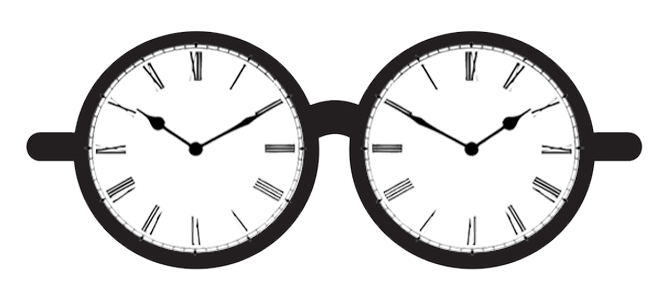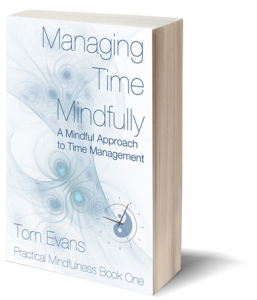
watch [noun] : a timepiece, a chronometer (worn on the wrist or carried in a pocket)
From when we are born until we leave the planet, time is superimposed upon us and someone or other seems to be ‘watching over you’.
We are indoctrinated with the notion of time from birth. Babies have times for feeding, changing, and bathing. Timetables regulate our school lessons. School-time all too quickly morphs into the nine to five of work-time. We intersperse our days with breakfast times, break times, lunch times, tea times, and supper times. Commuters just have to catch that train, right on time, so they can ‘clock in’ and ‘clock out’ at the end of their working day.
We have a bedtime and, before we know it, it’s time to get up again. Note that between these two times, when we are sleeping and dreaming, time takes on a different and ethereal quality. If you ever end up awake in the small hours, however, time can seem to stretch to eternity.
Our language, too, is littered with temporal references:
- ‘Just a minute.’
- ‘Give me a second.’
- ‘Cometh the hour, cometh the man.’
- ‘Another day, another dollar.’
- ‘That is so last season.’
- ‘Holding back the years.’
Stop the World, I Want to Get Off
It seems that time is imposed upon us from birth right through to death, and that we cannot escape either its forward arrow or its grip. Yet, go back just 200 years or so, and nobody wore a watch. So this obsession with time is actually quite recent. In our so-called modern society, what is making this somewhat worse is that the world is permanently ‘switched on’. Before we had electric light, people snuffed out candles and went to sleep when it got dark.
The key to taking time back under our control lies in ‘watching’ ourselves internally. Firstly, take notice how the speed of time seems to vary depending on what we are doing and thinking. A busy weekend with friends seems to zoom by. An interminable wait in a doctor’s surgery seems to drag out forever. When we travel somewhere new, it seems to take longer than the journey back or the return trip. Secondly, reflect on days where you got lots done and on those days where you where pushing water up a temporal hill. Notice how you felt about those days before, during and after.
Synchronising with EMT
The passage of time is subjective and herein lies the clues on how we can control it, as opposed to it controlling us. The practice of mindfulness meditation is what opens the door to a new way of being that I call timefulness. Taking 10 minutes of ‘me time’ out each day is all that’s needed to slow time down and to get more done with less of it. With just a few days practice, we can enter Extended Me Time, or EMT. This is a luxurious state to be in where we become time lords, and of course time ladies.
When we sync with EMT, here’s what happens:
- We get our creative tasks done, in what seems like ‘no time at all’
- Interruptions are minimised
- External events seem to happen ‘just in time’
- Our stress levels reduce whilst our productivity increases
- People want to learn our secret
p.s. I haven’t worn a watch for years and am rarely late 🙂
If you’d like to know more about how to manage the passage of time, as opposed it it managing you, get a copy of my new book Managing Time Mindfully. It comes with free guided meditations to give you the luxury of ‘me time’.
Related Posts
Switching to EMT
A Synthesis of Time
My Magical Week
Another day, another dollar

